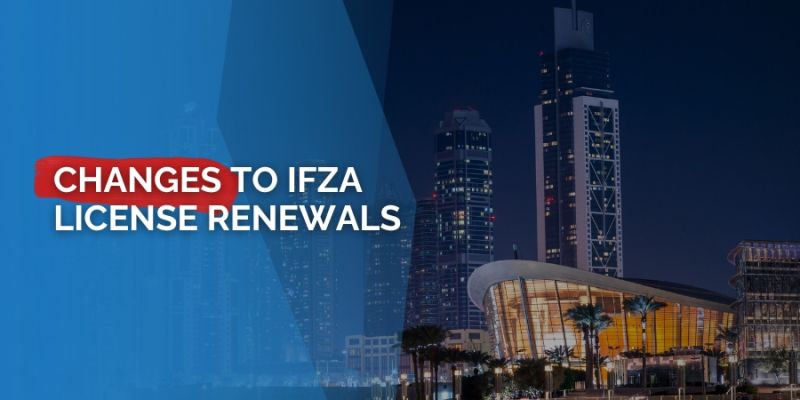If you’ve been operating in Dubai’s International Free Zone Authority (IFZA), chances are you’ve appreciated how straightforward things usually are: quick paperwork, digital applications, and a system designed to help entrepreneurs move fast. But from 30 September 2025, that familiar routine is going to feel a little different.
Why? Because renewing your license is no longer just about paying a fee and pressing “submit.” From now on, you’ll need to hand in your financial statements at the same time.
And here’s the important part: this applies to everyone — not only large companies. Whether you’re running a small Free Zone Company (FZCO) with just a handful of staff, or you’re a branch office of a bigger overseas operation, the rule is the same. No financial report, no license renewal.
What Exactly Is Changing?
Until now, license renewal in IFZA was largely administrative. Starting this autumn, the renewal and your accounts become a package deal. Every application must include financial statements for the last completed year, uploaded electronically and signed by someone with authority — that means a director, shareholder, or manager.
There are two safety valves in the system.
- If you already renewed before 30 September 2025, you don’t have to file reports “retroactively.” Your turn comes at the next renewal.
- If you’re brand new and your first financial year hasn’t closed yet, IFZA will let you renew without financials. But they may ask you to sign a commitment confirming you’ll deliver them once the year ends.
So the rule is clear, but it isn’t designed to trip up newcomers or those who just missed the cut-off.
Small vs. Large: Two Paths to Compliance
The reporting format depends on your size. IFZA has set clear thresholds:
- Smaller outfits: If your turnover stays at or below AED 3 million and your staff count is nine or fewer, you can file a simplified version. In fact, if you’re under the AED 3 million revenue line, you can even stick with cash accounting. That’s about as straightforward as financial reporting gets.
- Larger players: Once you go above those limits, things change.
- If turnover is between AED 3 million and 50 million, you’ll need an audit under the International Financial Reporting Standards for SMEs (IFRS for SMEs).
- Cross the AED 50 million mark, and you’re required to submit full IFRS-compliant audited statements.
Audits can be carried out by any audit firm licensed in the UAE. Down the road, IFZA may release its own list of approved providers, but for now, any qualified local auditor will do.
Already Filed With the FTA? You’re in Luck
If your company has been filing with the Federal Tax Authority (FTA), you don’t need to do everything twice. The same set of financials can be used for both FTA and IFZA purposes. This saves time, money, and the headache of preparing duplicate reports.

Want to learn more about UAE business setup services?
What Does This Mean for Day-to-Day Business?
For many entrepreneurs, this is more than a new box to tick. It’s a cultural change. Accounting can no longer be left until the last minute. Whether you’re a two-person consultancy or a trading company with staff across multiple offices, you’ll need systems in place to capture transactions, organize receipts, and produce statements that match IFZA’s requirements.
It may feel like an added burden at first, but there’s an upside. Proper financial reporting makes your company stronger. Banks are more open to providing services when they can see reliable numbers. Investors and partners are more willing to engage when accounts are clear and audited. Even employees feel more confident when they know the company they work for keeps proper books.
Think of it less as bureaucracy and more as building credibility. In a marketplace as competitive as Dubai, that credibility matters.
The Takeaway
So here’s the bottom line: from September 2025 onward, no financial report means no license renewal in IFZA.
If you’re a small outfit, the simplified path keeps things manageable. If you’re larger, prepare for audits as part of your annual routine. Either way, the smart move is to start early. Get your accounts in order, engage an auditor if you need one, and make reporting part of the way your business operates.
In the long run, this isn’t just about staying compliant. It’s about presenting your company as a serious, trustworthy player in one of Dubai’s most dynamic free zones.
